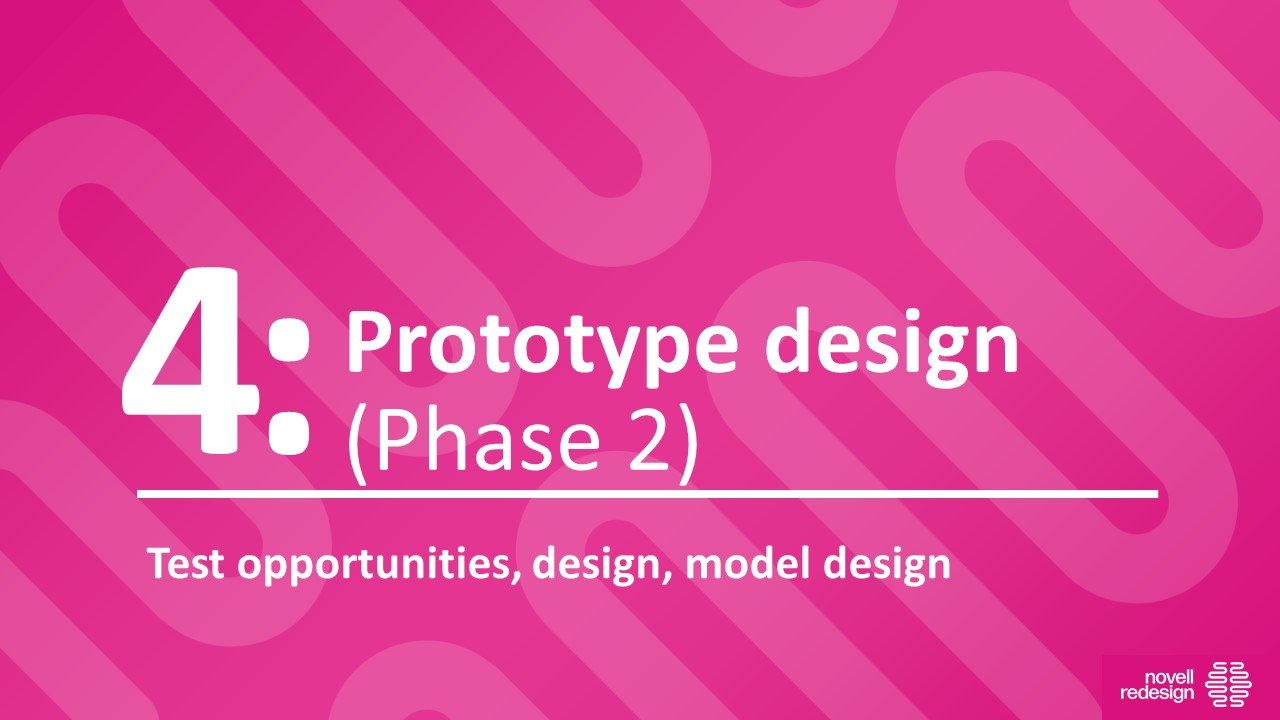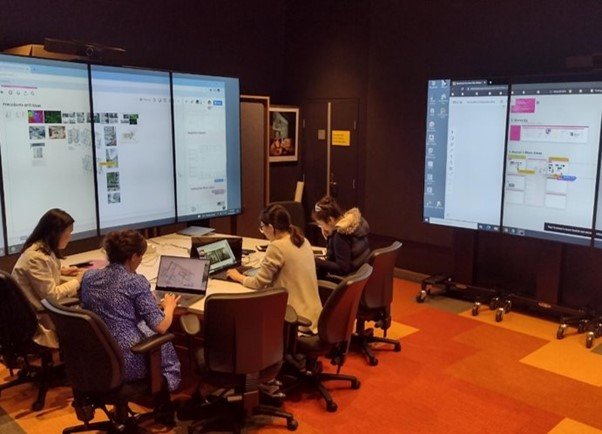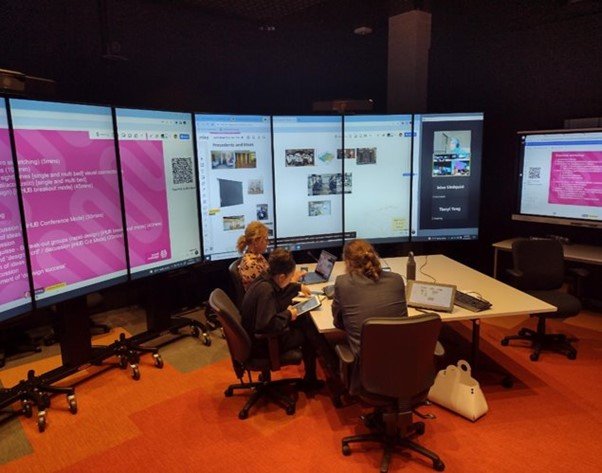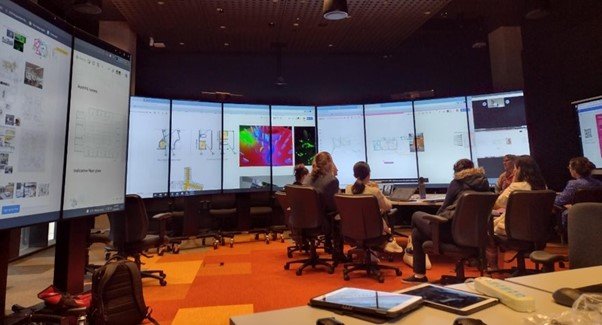NOVELL @EHD2022
We recently had the opportunity to present the NOVELL Project at European Healthcare Design (EHD) Congress in London. The EHD Congress provides an international forum for researchers and practitioners to explore the relationship between health service and system design, technology and infrastructure.
Professor Julie Bernhardt presented on behalf of the project and co-researchers about the NOVELL Method and the journey so far. The NOVELL method revolves around three interconnected stages that are based on a design science model. Progress through these stages is not linear, which allows us to continually adapt and address new needs and opportunities as they emerge.
Phase 1 (Concept Design) is made up of three interconnected parts: Our systematic literature review and narrative review, an evidence synthesis and mapping process, and the series of co-design workshops with project stakeholders we hosted in 2020.
As we work through Phase 2 of the Project (Prototype Design) we are generating, modeling, and testing speculative design configurations for the rehabilitation facilities based on the evidence-based outcomes of Phase 1. We’re currently doing this by running a series of rapid mini-sketch design exercises called 'design esquisses' to explore spatial and service possibilities. These design esquisses are run as small, targeted workshops with cross-disciplinary design teams made up of academics and practitioner design partners.
Apart from sharing our project methodology, presenting at EHD2022 also gave us the opportunity to share how NOVELL addresses critical gaps in the fields of architecture, design, policy, and healthcare:
The relative lack of collaboration among fields of architecture, health, health facility management, health technology, interior design, academia and Government. NOVELL brings together Australian and International design and health experts with a passion for improving current models of care in a neglected field and will build capacity for the future.
Inconsistent and often inadequate application of research methodologies to design projects. In NOVELL, we are creating a new science-based model for developing innovative healthcare facilities that is user-led, from the early point of engagement through to knowledge dissemination and implementation. The proposed research framework will extend the current evidence-based for built environments for health design in Australia and Internationally.
The lack of dissemination of research findings in architecture and design literature due to a focus on industry-led post-occupancy evaluations, which are not typically shared. We have created an open ecosystem to share our findings through a range of platforms, including academic platforms, translation networks, and social media
The need for knowledge translation to future generations of health designers and architects. During the project, the identified design challenges are being translated into education-appropriate modules that are shared with universities as the basis for design education challenges in coursework. At the end of the project, the NOVELL designed rehabilitation facility will be freely available as an information-rich annotated three-dimensional web-viewable design model for architects, students, health directors, and decision-makers, which will further increase translation potential.
The need for less 'problem-based' design, and more 'possibility-based' design. Through the living lab approach, NOVELL will go beyond existing problem solution statements and combine the best available evidence with forward thinking designers, users (stroke survivors, clinicians), and other experts in the field to develop a next generation concept of rehabilitation setting and service.










